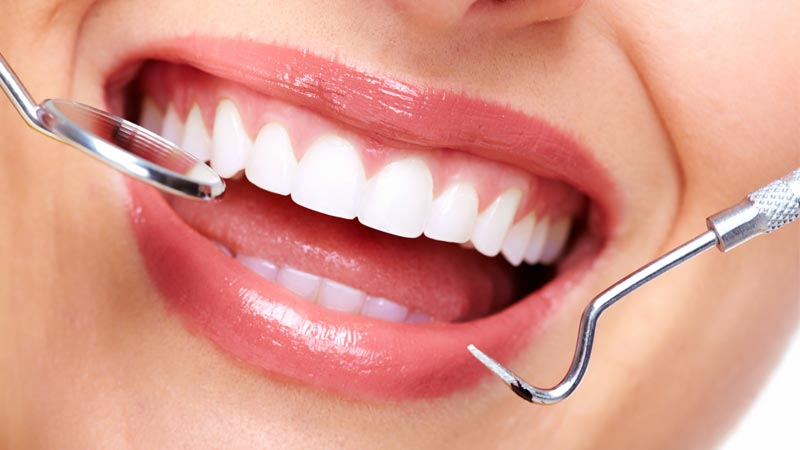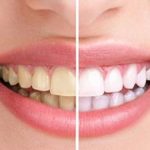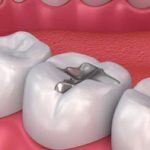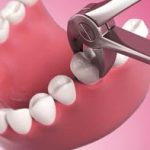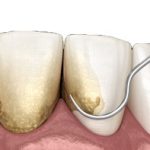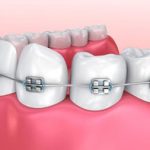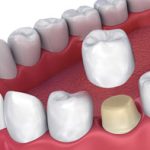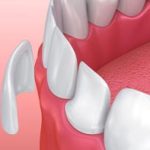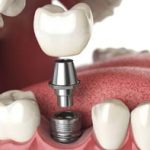WISDOM TEETH REMOVAL
Wisdom tooth extraction is a surgical procedure to remove one or more wisdom teeth — the four permanent adult teeth located at the back corners of your mouth on the top and bottom.
If a wisdom tooth doesn’t have room to grow (impacted wisdom tooth), resulting in pain, infection or other dental problems, you’ll likely need to have it pulled. Wisdom tooth extraction may be done by a dentist or an oral surgeon.
To prevent potential future problems, some dentists and oral surgeons recommend wisdom tooth extraction even if impacted teeth aren’t currently causing problems.
How long does it take to recover from a tooth extraction?
It depends on the complexity of your case. However, most people feel back to normal in just a few days. While you’ll be able to return to routine activities within 48 to 72 hours, it usually takes the jawbone several weeks to heal completely. Therefore, if you’re planning on replacing the tooth with a dental implant, you’ll probably need to wait a few months to allow for full recovery.
Tooth extraction aftercare
After your extraction, your dentist will give you a detailed list of post-surgical instructions. Here are some general guidelines for a speedy recovery:
- Keep the extraction site clean. Gently rinse the area with an antimicrobial mouthwash two to three times a day. Avoid brushing directly over your extraction site until your dentist tells you it’s safe to do so. Brush and floss all other areas normally.
- Take all medications as directed. Your dentist may prescribe antibiotics and pain relievers. It’s important to take all of these medications exactly as directed. You can also take over-the-counter pain relievers, such as acetaminophen and ibuprofen.
- Avoid strenuous activity for at least two days. An elevated heart rate can cause increased post-operative bleeding and discomfort. Skip the gym for the first 48 to 72 hours. Ask your dentist when it’s safe to resume normal routines.
What can I eat after a tooth extraction?
Avoid hard and crunchy foods for the first few days. Stock your fridge and pantry with soft foods like rice, pasta, eggs, yogurt and applesauce. You’ll also want to avoid drinking through straws, as this can dislodge blood clots and cause dry sockets.
When can I go back to work or school?
Most people are able to return to work or school within a day or two. If you have a job that requires a lot of lifting or physical labor, you may need to take a few more days off work.
When to Do Wisdom Teeth Removal?
With dental X-rays and routine dental appointments, your dentist can monitor the progress of wisdom teeth. A wisdom tooth is extracted to correct a current problem or prevent any future problems that may arise. These are some of the problems that can occur with wisdom teeth:
It is possible for them to become impacted and unable to break through your gums if your jaw is too small for them.
You may develop a flap of the gum tissue over your wisdom teeth if they break through the gums. You may develop red, swollen, and painful gums if food and germs collect under the flap. These are symptoms of an infection.
An impacted wisdom tooth can cause more serious problems, such as painful inflammation, infection, damage to other teeth and bones, or a cyst.
The top of any of your wisdom teeth may emerge at an unusual angle, facing forward, backward, or on either side.
In each case, it is up to the attending dentist to determine whether to extract teeth that are already problematic or whether to prevent such complications while the teeth are still symptom-free.
Before Wisdom Teeth Removal
Before scheduling the procedure, the dentist requests some dental x-rays. Those who are pregnant or have chronic diseases should tell their dentist. Patients with compromised immune systems or histories of serious medical conditions (such as damaged or replaced heart valves, liver diseases, joint replacements, or bacterial endocarditis) will often be prescribed antibiotics before and after the procedure. Patients shouldn’t smoke for at least 24 hours before their surgery.
How Long Does Wisdom Teeth Removal Take?
The operation takes about 20 minutes for one tooth and can take up to over an hour if all four wisdom teeth are removed. Impacted wisdom teeth in the jaw, which require preparation through layers of tissue, take much longer than pulling a visible wisdom tooth with forceps.
Risks
Most wisdom tooth extractions don’t result in long-term complications. However, removal of impacted wisdom teeth occasionally requires a surgical approach that involves making an incision in the gum tissue and removing bone. Rarely, complications can include:
Painful dry socket, or exposure of bone when the post-surgical blood clot is lost from the site of the surgical wound (socket), Infection in the socket from bacteria or trapped food particles, Damage to nearby teeth, nerves, jawbone or sinuses.
After the procedure
If you receive sedation anesthesia or general anesthesia, you’re taken to a recovery room after the procedure. If you have local anesthesia, your brief recovery time is likely in the dental chair.
As you heal from your surgery, follow your dentist’s instructions on:
Bleeding. Some oozing of blood may occur the first day after wisdom tooth removal. Try to avoid excessive spitting so that you don’t dislodge the blood clot from the socket. Replace gauze over the extraction site as directed by your dentist or oral surgeon.
Pain management. You may be able to manage pain with an over-the-counter pain reliever, such as acetaminophen (Tylenol, others), or a prescription pain medication from your dentist or oral surgeon. Prescription pain medication may be especially helpful if bone has been removed during the procedure. Holding a cold pack against your jaw also may relieve pain.
Swelling and bruising. Use an ice pack as directed by your dentist or surgeon. Any swelling of your cheeks usually improves in two or three days. Bruising may take several more days to resolve.
Activity. After your surgery, plan to rest for the remainder of the day. Resume normal activities the next day, but for at least a week, avoid strenuous activity that might result in losing the blood clot from the socket.
Beverages. Drink lots of water after the surgery. Don’t drink alcoholic, caffeinated, carbonated or hot beverages in the first 24 hours. Don’t drink with a straw for at least a week because the sucking action can dislodge the blood clot from the socket.
Food. Eat only soft foods, such as yogurt or applesauce, for the first 24 hours. Start eating semisoft foods when you can tolerate them. Avoid hard, chewy, hot or spicy foods that might get stuck in the socket or irritate the wound.
Cleaning your mouth. Don’t brush your teeth, rinse your mouth, spit or use mouthwash during the first 24 hours after surgery. Typically you’ll be told to resume brushing your teeth after the first 24 hours. Be particularly gentle near the surgical wound when brushing and gently rinse your mouth with warm salt water every two hours and after meals for a week.
Tobacco use. If you smoke, don’t do so for at least 72 hours after surgery — and wait longer than that if possible. If you chew tobacco, don’t use it for at least a week. Using tobacco products after oral surgery can delay healing and increase the risk of complications.
Stitches. You may have stitches that dissolve within a few weeks or no stitches at all. If your stitches need to be removed, schedule an appointment to have them taken out.
Results
You probably won’t need a follow-up appointment after a wisdom tooth extraction if:
You don’t need stitches removed
No complications arose during the procedure
You don’t experience persistent problems, such as pain, swelling, numbness or bleeding — complications that might indicate infection, nerve damage or other problems
If complications develop, contact your dentist or oral surgeon to discuss treatment options.
Why Iran?
People who wish to have dental procedures like wisdom tooth removal can find it convenient to travel to Iran. Due to the availability of top-notch hospitals and clinics, as well as skilled doctors, Iranian medical services are renowned. A variety of factors, including politics, contribute to Iran’s currency’s poor performance against the dollar. Therefore, you will be able to get the best medical care at a great price.
Wisdom Teeth Removal Cost in Iran
Compared to other countries, wisdom teeth removal costs are significantly lower in Iran. Iran’s average cost of wisdom teeth removal is $80.
The main reasons for this are:
Iran has a large number of clinics for dental services.
Iran has a large number of applicants for dental services, especially tooth extractions.
Iran’s currency has a low value when compared to the currencies of other countries.
Due to these factors, dentistry services in Iran are very affordable despite having experienced and prominent dentists and oral surgeons, advanced equipment, and modern facilities.



